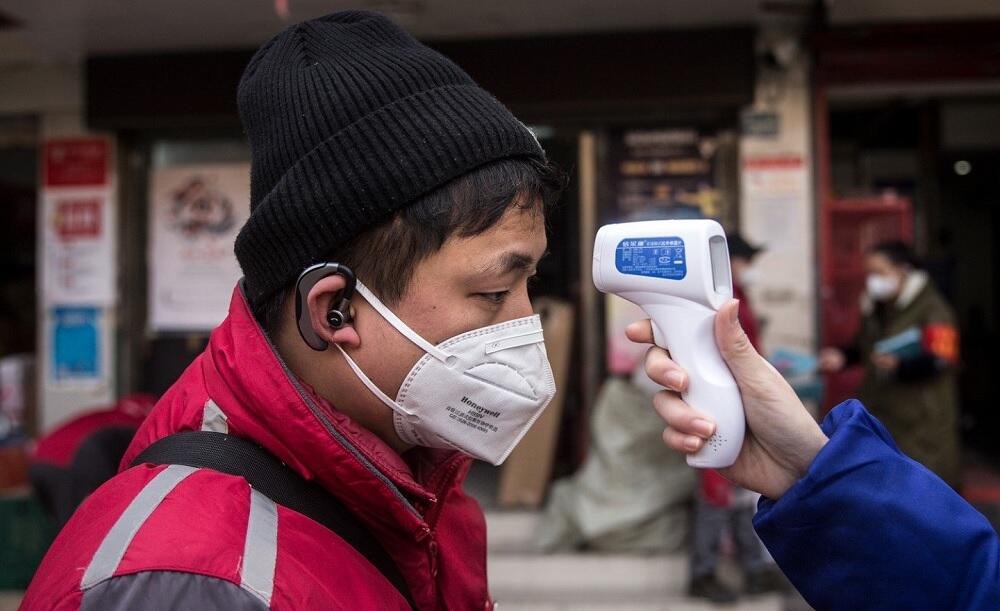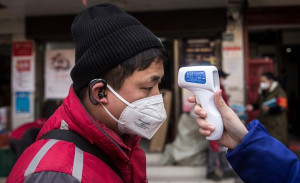Blog: Is It Really Business as Usual?
Article By : Junko Yoshida

It’s not just in Wuhan. Also in Shenzhen, all shops and restaurants are closed except some supermarkets and pharmacies.
The great coronavirus lockdown isn’t just affecting Wuhan. Shenzhen is also feeling the heat.
One of my friends in Shenzhen, now abroad on vacation with her family for the Chinese New Year holidays, yesterday related the seriousness of the situation unfolding in Shenzhen.
She messaged me via WeChat:
“The city is sealed off — not sure ‘sealed off’ is the correct word. But I mean in Shenzhen all shops and restaurants are closed except some supermarkets and pharmacies.”
Her husband is already back in Shenzhen from vacation to take care of his business. But she is uncertain whether it is wise to go back to China now.
Last week, at least 21 provinces, municipalities and other regions in China told businesses not to resume work before Feb. 10 at the earliest. The delay in resumption of business by at least a week is reportedly meant for the country to buy time controlling the spread of coronavirus.
As a reporter at EE Times, I focus on writing and editing stories about the impact of the outbreak on technology and business in the electronics industry. But the message from my friend reminded me how little time and thought I had spent imagining the day-to-day lives of people in locked-down cities.

(Source: Getty Images)
Her message prompted me to ping another friend in China. He lives in a region adjacent to Hubei, whose capital is Wuhan. When I asked him about his life over there, my friend, who happened to be outdoors, said that luckily his town is not locked down. He then shared a live video with me, showing a masked cashier, a few masked customers, and well-stocked aisles in a neighborhood supermarket.
This came as a relief, but this feeling does not mitigate the general vibe I’m getting from China. The Chinese people are reluctant to talk about the deadly virus, especially to foreign media. No one wants to be quoted.
Even some Western business people resident in China appear to be observing an informal coronavirus gag rule. Their modus operandi is to take an interview from the media so that they can stress the importance for Western companies to claim business as usual and show support to China and their partners in China.
In keeping with the theme, when we broach the subject of the coronavirus to Chinese businessmen, their standard line is: “Everything is normal. Things are OK.”
For that, I would say, “Maybe, for now.”
Misinformation vs. lack of information
Misinformation can fuel fear among people. But the suppression of information can damage business and even kill people.
Quartz reported Thursday a story about a Beijing-based doctor who had been summoned by Wuhan police because of information he shared in a medical school alumni group on Dec. 30. The doctor apparently had told the group there were seven cases of pneumonia in a hospital from SARS, a virus that caused an epidemic in China in 2003.
The Quartz story then went on:
He later clarified that the virus in question was still being identified, according to the South China Morning Post. Police made the doctor sign a letter promising not to disclose further information about the outbreak, the Post said, adding that the doctor later became infected himself. On Dec. 31, the city disclosed the presence of 27 pneumonia cases of unknown origin.
Curiously, a source in China, speaking on condition of anonymity, told me that his company’s CEO had somehow learned about the deadly virus well before coronavirus became public knowledge.
By January 1st, the CEO had responded, ordering his company to start stocking up on materials, to work out contingency plans with suppliers, and beef up video conferencing equipment for communicating with sources outside China, or with employees who could not return to China.
It is unclear if such measures can carry the company through the crisis. But the moral of the story is clear. The lack of transparency makes it harder for anyone to make smart decisions, let alone corporate executives.
Faced with a crisis — whether a nuclear power plant meltdown or a coronavirus outbreak, too many national governments, guided by instinct, initially see “damage control” as their primary responsibility. I saw this head-in-the-sand syndrome unfold in 2011 when EE Times covered Japan’s earthquake and tsunami, a disaster that subsequently knocked down nuclear power plants and spread radioactivity throughout the prefecture of Fukushima.
It’s not unusual for authorities to respond to crisis by trying to tamp down people’s fear. Anyone who stokes popular fear, even when it’s justified, face punishment. No government, no corporation, no business wants to look out the window and see torches and pitchforks.
The bad news is that downplaying the impact of the crisis can only delay finding the scope of the problem, and its solutions. Worse, it hinders people and business from devising a Plan B that could help combat the situation.